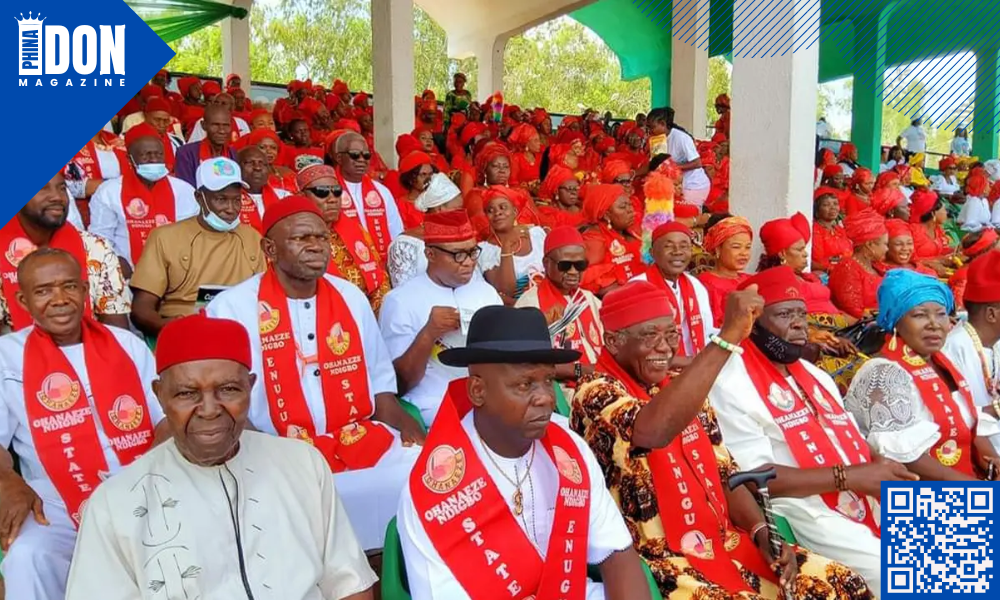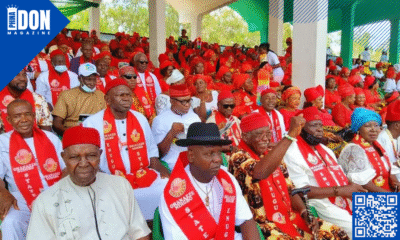News
The Naira’s Decline and Economic Implications in Sub-Saharan Africa

As of August 2024, the Nigerian naira is officially recognized as one of the worst-performing currencies in Sub-Saharan Africa, a designation underscored by the World Bank’s latest report, “Africa’s Pulse.” The naira experienced a staggering depreciation of approximately 43 percent year-to-date, positioning it alongside the Ethiopian birr and South Sudanese pound in a category of weakness that signals severe economic distress.
The factors contributing to this alarming decline are multifaceted. A significant surge in demand for United States dollars in the parallel market has created immense pressure on the naira. This demand predominantly stems from financial institutions and non-financial end-users, which has been exacerbated by a scarcity of dollar inflows and delays in foreign exchange disbursements from Nigeria’s central bank. Despite the government’s attempts at reforming the foreign exchange market, including liberalization efforts initiated in June 2023, such measures have yet to yield the desired stabilization of the currency.
The ramifications of the naira’s depreciation extend beyond mere currency valuation; they permeate the lives of consumers and businesses alike. As the value of the naira continues to dwindle, imported goods have seen a marked increase in prices, further straining the purchasing power of Nigerian households. In contrast, while the naira falters, other currencies in the region, such as the Kenyan shilling and South African rand, have shown resilience and recovery, highlighting the varying economic trajectories within the continent.
Even amidst these challenges, there have been isolated signs of optimism. The naira recorded a modest appreciation of 5.69 percent against the dollar in mid-October 2024. However, this recovery was coupled with a significant decline in foreign exchange turnover, which plummeted by 44.27 percent within the same timeframe. Such fluctuations underscore the volatility of the naira and the persistent underlying economic challenges facing Nigeria.
The World Bank’s cautious outlook for Nigeria forecasts a projected Gross Domestic Product (GDP) growth of 3.3 percent in 2024, with a gradual acceleration expected into 2025-2026. Yet, the recent removal of fuel subsidies has led to a dramatic rise in gasoline prices, further intensifying inflationary pressures that peaked at 34.2 percent in June 2024. Though inflation showed signs of moderating, the continued escalation of fuel prices has the potential to reverse these gains, posing a formidable challenge to policymakers.
In conclusion, the plight of the naira serves as a microcosm of Nigeria’s broader economic struggles. While reforms and market adjustments are underway, the immediate future remains fraught with uncertainty. Addressing the systemic issues that have led to the naira’s depreciation will be critical not only for stabilizing the currency but also for fostering sustainable economic growth in Nigeria and the wider Sub-Saharan region.
News
Ohanaeze Ndigbo Youth Condemns Alleged Police Summon of Uzo-Uwani Chairman

The Ohanaeze Ndigbo Youth wing has voiced strong condemnation regarding the reported summoning of Mr. Chijioke Ezugwu, the Uzo-Uwani local government chairman, by the Enugu State police command. This follows recent violence in Uzo-Uwani, where suspected herdsmen have allegedly killed numerous residents, prompting local security efforts.
According to reports, Mr. Ezugwu was questioned regarding alleged killings of herdsmen. Ohanaeze Ndigbo Youth Council Worldwide President, Mazi Okwu Nnabuike, has called the summon unacceptable, lamenting the perceived lack of police action against the alleged perpetrators of the Uzo-Uwani attacks while criticizing the swiftness in summoning the council chairman.
Mr. Okwu stated that the situation in Uzo-Uwani is underreported and severe, marked by frequent abductions and attacks. He criticized the police for allegedly failing to apprehend those responsible for violence, including the murder of an elderly couple. He further asserted that the police’s actions may be perceived as emboldening criminals. The group has urged the Enugu State Police Command to address these allegations. They warn that continued “harassment” of the council chairman could result in widespread protests by Igbo youths.
News
Nigerian Navy Dismantles Illegal Oil Infrastructure in Rivers and Delta States.

In a significant operation against crude oil theft, the Nigerian Navy has successfully discovered and disconnected a wellhead linked to pipelines utilized for illicit siphoning of crude oil. The announcement, made via the Nigerian Navy’s verified Facebook page, detailed the operation conducted by Nigerian Navy Ship (NNS) Pathfinder on Wednesday, June 4, 2025.
The NNS Pathfinder patrol team also uncovered and deactivated eight illegal refinery sites in Egbema, Rivers State. The operation resulted in the dismantling of 26 refining ovens, 30 reservoirs, and 32 dugout pits containing substantial quantities of illegally acquired crude oil and illegally refined Automotive Gas Oil (AGO).
Furthermore, on Tuesday, June 3, 2025, Nigerian Navy Ship Delta discovered and deactivated 16 dug-out pits and numerous sacks filled with large volumes of stolen crude oil in the Obodo Omadino community, Warri South-West Local Government Area, Delta State.
These operations highlight the Nigerian Navy’s ongoing commitment to combating crude oil theft and illegal refining activities, which have significant detrimental effects on the nation’s economy and environment. The dismantling of these illegal infrastructures represents a crucial step in curbing these illicit activities and safeguarding Nigeria’s resources.
Entertainment
Nigerian skitmaker Nasboi Survives Car Accident.

Nigerian skitmaker and musician Lawal Nasiru, known professionally as Nasboi, was involved in a car accident on Wednesday. According to reports, Nasboi’s vehicle collided with a parked trailer.
The accident occurred shortly after Nasboi embarked on a nationwide tour, which he playfully described as a campaign to secure a collaboration with singer Davido.
Following the incident, Nasboi addressed his followers via social media, assuring them of his safety and recovery. In a live video, he remained composed, expressing gratitude that no one was injured. “We thank God nobody got harmed. No injuries at all,” he stated.
Nasboi reflected on the experience in an Instagram post, captioning it: “Thank God for life. Few hours ago!! No injuries sustained, No single scratch. Now I’m thinking if I should stop or to continue.” The skitmaker’s post leaves his fans wondering if he will continue his tour.
Watch Video Below :
View this post on Instagram
-

 Entertainment2 days ago
Entertainment2 days agoDavido Mocks Former Osun Speaker Over Exclusionary Remark.
-

 Entertainment2 days ago
Entertainment2 days agoTems Honored at Billboard’s Inaugural Global Power Players Event.
-

 Entertainment2 days ago
Entertainment2 days agoFalz Denies Relationship with Bobrisky Amidst Ongoing Defamation Suit.
-

 Entertainment1 day ago
Entertainment1 day agoKizz Daniel is considering taking a break from recording to focus on his family.
-

 News2 days ago
News2 days agoNigerian Navy Dismantles Illegal Oil Infrastructure in Rivers and Delta States.
-

 News18 hours ago
News18 hours agoOhanaeze Ndigbo Youth Condemns Alleged Police Summon of Uzo-Uwani Chairman





